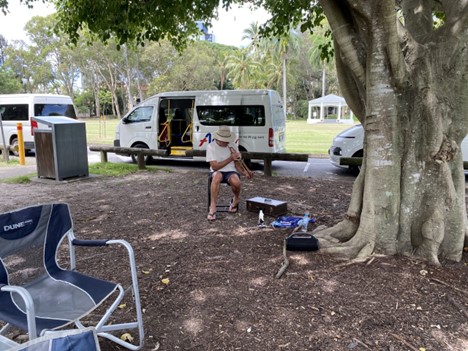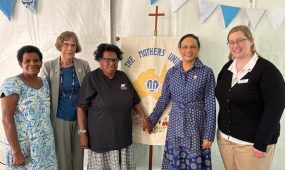Get on top of your health this Men’s Health Week
Local
During Men’s Health Week, we’re encouraged to highlight the importance of men’s health and promote improved wellbeing outcomes for men and boys globally

There are many areas of health; physical health, mental health and emotional wellbeing. Men’s Health Week is designed to provoke discussion and encourage men to take control of their own health outcomes. It reiterates the importance of early detection, prevention and treatment of diseases that are harmful to males.
Health amongst Australian men
Compared to women, men are more likely to develop a serious illness. They also tend to have a higher mortality rate and are less likely to present to their doctor. When they do, it’s typically when their illness has advanced.
During Men’s Health Week, it’s important to understand which groups of men are at higher risk of experiencing a shorter life expectancy. They generally include Aboriginal and Torres Strait Islander men, migrant men, men who live in remote or rural regions, incarcerated men, men with disabilities, men who are socially disadvantaged and those from LGBTIQA+ communities.
The top causes of premature death amongst men are the following*:
- ischaemic heart disease
- dementia and Alzheimer’s disease
- trachea and lung cancer
- cerebrovascular disease (medical conditions that affect the blood flow in the brain)
- chronic lower respiratory diseases
- prostate cancer
- blood and lymph cancer (including leukemia)
- diabetes
- colon and rectum cancer
- suicide.
*Note: this list of leading illnesses that lead to common deaths in Australian men has been ordered from highest to lowest.
Men’s mental health and wellbeing
One in eight and one in five Australian men will experience depression and anxiety, respectively, at any given stage in their life. Notably, they’re four times more likely to die from suicide than women. Research shows that two thirds of men who are in crisis don’t feel confident or empowered to speak up about their mental health concerns.
It’s important that they can feel confident to reach out and discuss their feelings or experiences. As a society, we need to change our narrative around men being able to seek help and encourage them to feel safe and supported to do so. If you or another male figure in your life are experiencing any of the following, make sure to reach out or ask them if they are okay:
- issues with health and wellbeing
- disinterest in things that were previously enjoyable
- are more withdrawn
- are confused, irrational or moody
- are experiencing changes personally or professionally.
Isolation can also contribute to negative health outcomes for men. Getting out, socialising and meeting new people create positive health outcomes. As part of some of respite centre services, our teams organise men’s groups to meet up, relax and just enjoy the day together.

A street musician performing at one of Anglicare Southern Queensland’s recent Men’s Group outings on the Gold Coast
Anglicare mental health services to support men
Our organisation is doing our part to empower men to lead their own positive health outcomes. At Anglicare Southern Queensland, we offer various services and programs to support men. They’re designed to improve their relationships, provide them with family support and assist their general mental and emotional wellbeing.
Some of the support services we offer men include family and relationship counselling, support with separation and parenting programs.
Our organisation also provides court-appointed counselling to men with drug and alcohol dependency. Additionally, we provide intervention services for men with aggression and those who use violence against their family/intimate partner. These programs are designed to help them cease abusive and violent behaviours and create safe and respectful relationships.
To learn more about our wellbeing services for men, click here.
Staying healthy
This Men’s Health Week, take the time to evaluate your own health and understand habits and behaviours that could lead to negative health consequences. Use this opportunity to speak up about any health-related concerns that you may have with a professional.
By creating healthy habits from an early age and following them daily, you can prevent harmful diseases, which can often lead to early mortality. Ways that you can establish healthy habits include having a healthy work/life balance, eating well and exercising, talking about feelings, checking in on those around you and engaging in regular health check-ups/screenings for early detection of diseases.
Advertisement
First published on the Anglicare Southern Queensland website on 12 June 2023.
Editor’s note: Immediate support is available for those who may be distressed by phoning Lifeline 13 11 14; Mensline 1300 789 978; Kids Helpline 1800 551 800; and, beyondblue 1300 224 636.
Note from Jenny Clark, ACSQ Domestic and Family Violence Project Officer: The Anglican Church Southern Queensland (ACSQ) is committed to the rollout of the Ten Commitments as our Church’s response to domestic and family violence. This includes encouraging links with local support services.
The following 24/7 telephone services have a long track record responding to people experiencing domestic and family violence:
- DV Connect 1800 811 811 helps Queenslanders wanting leave an abusive relationship.
- 1800RESPECT is a national service providing information, referrals, and counselling.
If you, or the person you are assisting, are in immediate danger please call the Police on 000.





